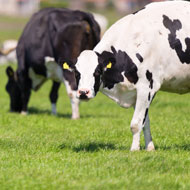‘New approach’ needed to tackle TB in Wales

The report calls on the Welsh government to set a national target date for Wales to be officially TB-free.
Proposals to start targeted badger culling in Welsh cattle herds with persistent outbreaks of TB has been welcomed by a National Assembly committee.
A new report by the committee says a ‘refreshed’ approach is needed to tackle the disease in Wales. However it warns that culling must be scientifically monitored and reviewed to ensure its efficacy. If it is shown to be ineffective, it must be stopped or changed. Evidence gathered must also be made available for independent peer review.
The committee is calling for a regional approach to tackle the disease, which would see areas of Wales categorised as high, medium or low risk, with different restrictions for each level.
Surveillance testing of cattle and risk-based trading should also be among the options considered. In the first instance, the committee recommends a voluntary system for risk-based trading, but this should be kept under review and made mandatory if necessary.
The report calls on the Welsh government to set a national target date for Wales to be officially TB-free, and provide some clarity on how this will be achieved. Unlike England and Ireland, the Welsh government has not yet set a timetable for TB eradication.
Jenny Rathbone, interim chair of the Climate Change, Environment and Rural Affairs Committee, said they had examined the strategies being used across the globe, seeking the best evidence on how to eradicate TB in Wales.
“We concluded that the a refreshed strategy is needed, which encompasses a regional approach to eradicating TB, movement restrictions on infected herds and risk-based trading among other options. We also need to keep a close eye on the management of larger dairy herds and any link with the slurry they generate.”
The Welsh government had also proposed to cut the maximum amount it pays in compensation from £15,000 to £5,000. Over the past decade, around £150 million has been paid to farmers whose animals were destroyed through the TB eradication programme. Part of the reasoning behind the proposal to reduce compensation relates to the expected end to EU funding, which is currently worth £2-3 million a year.
Responding to the proposal, the committee called on the government to ensure farmers are paid a “reasonable sum” in compensation. Ms Rathbone said the policy will be reviewed after 12 months to make sure it is the most effective way to ensure Wales is TB-free. The government was also urged to ensure current funding received from the EU for bTB testing and other measures is guaranteed within future governmental budgets.



 The latest
The latest